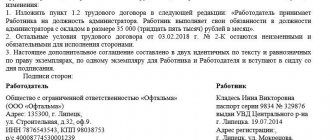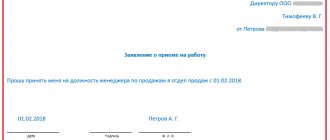Double taxation in Russia
To avoid double taxation, the Russian government enters into agreements with the governments of other countries that help develop relations between residents of these two countries when making transactions. Such double tax treaties help relieve a business from the exorbitant tax burden that can arise when paying income from a resident of one country to a resident of another country.
In these agreements on the avoidance of double taxation, by agreement at the international level, certain types of transactions are exempted by one of the countries from paying tax or some preferential conditions are established for the payment of this type of income tax. After all, the tax on this income, for example, has already been paid in the country in which the taxpayer (tax agent) paying remuneration to his foreign partner is located.
In Russia, paragraph 1 of Art. 7 of the Tax Code establishes the priority of an international agreement over domestic tax legislation. This means that if, in accordance with the norms of the Tax Code, the tax rate is set at 10%, and in an international agreement - 5%, then the taxpayer has the right to apply the rate established by the international agreement. However, in this case, it is mandatory to comply with all the conditions specified in the international treaty.
Read about the tax policy pursued by the Russian Federation in the article “Tax Policy of the State for 2016-2018.”
What is the Agreement?
An agreement is an international treaty concluded between two countries that resolves issues of eliminating double taxation.
Moreover, the Agreement regulates the taxation procedure for both citizens and companies. The essence of the Agreement is that the same income or object should not be taxed twice: in Russia and abroad. At the same time, the Agreement is also aimed at tax evasion.
The Agreement specifies the taxation procedure for various incomes, the duration of the Agreement, as well as the procedure for its termination.
Let us note that such Agreements have not been concluded by Russia with all countries. To date, Russia has signed the Agreement with 84 countries.
Conditions for obtaining tax benefits in international transactions
Among the conditions established by Russian tax legislation for the application of preferential taxation in accordance with the terms of international agreements on the avoidance of double taxation, the main one is confirmation of the fact that the counterparty is located abroad. We are talking about a foreign partner of a Russian taxpayer, to whom the latter pays income. This is indicated in sub. 4 paragraphs 2 art. 310 NK. The taxpayer will also need to prove that his partner is the actual recipient of the profit and not an intermediary.
In paragraph 1 of Art. 312 of the Tax Code states that the foreign partner is obliged to provide the Russian tax agent with evidence that he is the actual beneficiary and that he is located on the territory of the state with which Russia has concluded a double tax treaty.
If the supporting documents are drawn up in a foreign language, then you will need to worry about translating them into Russian. Also, fiscal authorities in most cases require that documents have an apostille. In order for the tax agent not to withhold tax on a foreigner's income (or to apply preferential tax treatment), it is necessary that all of the above supporting documents be provided before the income is paid.
If they are provided later, income tax will be withheld in accordance with Russian tax legislation. But later, upon provision of documents, the paid tax can be returned and additional income can be paid to the foreign partner.
So, what documents must a foreign partner provide to avoid double taxation? In paragraph 1 of Art. 312 of the Tax Code provides an exhaustive list of such documents:
- confirmation certified by a competent foreign authority (this includes financial and fiscal departments of foreign states) about the permanent presence of a resident in a given foreign state (+ translation into Russian);
- documentary evidence that the foreign recipient of the income has the actual right to it.
However, neither in this paragraph nor anywhere else in the Tax Code is there a clear indication of what requirements are imposed on the form of documents. Typically, such supporting documents are referred to as “Tax Residency Certificates.”
Previously, the requirements for the form of documents and other issues that should have been given attention regarding the specifics of providing supporting documents to the fiscal service authorities were collected in a “manual” compiled by the Federal Tax Service and set out in the order of the Ministry of Taxes and Duties dated March 28, 2003 No. BG-3- 23/150. But these methodological recommendations have lost their effect on the basis of the order of the Federal Tax Service dated December 19, 2012 No. ММВ-7-3/ [email protected]
At the moment, the Federal Tax Service has not issued new clarifications on this issue, so it has become more difficult for taxpayers to work through each specific situation. Thus, today taxpayers are forced not only to study all available explanations from the financial and fiscal departments on the issue of interest, but also to study the existing judicial practice.
How to apply the provisions of the Agreement to individuals?
An individual resident of the Russian Federation can receive income from a foreign company, for example, dividends. In this case, the individual must independently report to the Russian tax inspectorate (clause 1 of Article 229 of the Tax Code of the Russian Federation).
If an Agreement has been concluded with a foreign state - the source of payment of dividends, then the total amount of personal income tax can be reduced by the amount of tax that was paid in a foreign state (clause 2-clause 4 of Article 232 of the Tax Code of the Russian Federation).
We will talk in more detail about how to make an offset in the next article.
Judicial practice on issues of avoiding double taxation
Let's look at some situations for which there is already established judicial practice:
- About which body is considered competent when certifying confirmation of the permanent location of a foreign company.
The Supreme Arbitration Court's ruling No. BAC-15167/13 dated 07.11.2013 established that certificates of registration of a foreign company as a payer of value added tax and tax exemption issued by the German fiscal service are not necessary confirmation of the company's permanent location in Germany. However, the courts reviewing these documents previously considered these documents sufficient for exemption from income tax in Russia in accordance with the international agreement. The Supreme Court did not find any violations in these findings.
In the ruling of the Supreme Arbitration Court dated March 26, 2014 No. VAS-716/13, the judges did not find any violations in the arguments of the FAS DO (resolution dated November 14, 2013 No. F03-5168/13), which concluded that the company registration certificates provided by Korean taxpayers, signed by the bosses fiscal services of 2 districts of Korea are reliable confirmation of the permanent location of foreign counterparties.
For more information on how companies can confirm their permanent location, read our article “How a foreign company must confirm its location .
- Providing confirmation before the date of receipt of income.
The resolution of the Federal Antimonopoly Service of Moscow dated February 15, 2013 No. F05-15470/12 states that tax withholding on the income of a foreign partner must be carried out by a tax agent from Russia, since supporting documents were provided after the moment of payment of income.
You will find even more information about judicial practice on this issue in our article “The Supreme Court of the Russian Federation again did not agree with penalties for late confirmation of the location of a foreign recipient of income .
About the procedure for calculating penalties from the Federal Tax Service for untimely provision of supporting documents, read our article “Does the tax authority have the right to charge a penalty to a tax agent who has not withheld tax on the income of a foreign organization if a certificate of the location of the foreign organization was submitted to the tax agent later than the payment of income to the foreign organization?” .
And another case of providing documents later than the deadline for payment of income by the source is discussed in our article “If the tax agent received confirmation of the residence of the counterparty after payment of income to him, the accrual of penalties is unlawful .
- On the annual provision of confirmations.
The resolution of the Federal Antimonopoly Service of Moscow dated January 17, 2014 No. F-05-16745/13 states that if the supporting document does not indicate the validity period for other tax periods, then it cannot be accepted as justification for other tax periods. At the same time, the letter of the Ministry of Finance dated April 14, 2014 No. 03-08-R3-016905 states that Art. 312 of the Tax Code there are no provisions on limiting the validity period of the provided confirmations.
- About affixing an apostille.
In their decisions, the courts adhere to the position chosen by the Presidium of the Supreme Arbitration Court and set out by it in Resolution No. 990/05 of June 28, 2005 (at that time the methodological recommendations were still in force) on the mandatory affixing of an apostille. The decision was dictated by the requirement for compliance with the 1961 Convention. Recent decisions of arbitration courts also state that the presence of an apostille is mandatory (Resolution of the Federal Antimonopoly Service of the Moscow Region dated February 15, 2013 No. F05-15470/12).
Taxation on profits from rental property
If a resident of the Russian Federation makes a profit from renting out an object, which is located, for example, in Germany, then all tax paid there is deducted from the amount of the fee in the Russian Federation. Income tax for Russian residents is 13%. If the amount of tax paid in Germany is less than what was calculated in the Russian Federation, then you must pay the difference.
If a person rents out an object abroad and receives income from it, he is obliged to declare this fact in the Russian Federation . A declaration is submitted in the form of 3-NDFL. Additionally, you will need one of the following documents:
- Confirmation of the amount of profit and paid tax. It indicates the type and amount of income, the year it was received, the amount of the accrued fee and the date of its payment.
- A notarized tax return in Russian, which was filed in another country. Additionally, you will need a photocopy of the payment slip indicating payment of the fee.
Learn more about taxes in the video below.
Tax paid abroad is credited when submitting a return. It is allowed to report profits to the tax office and receive a tax offset within three years from the date of receipt of income.
Examples:
- A citizen of the Russian Federation owns real estate in Germany and makes a profit from renting it out. The rental tax rate in Germany is 23.4%, in Russia - 13%. By paying the fee in Germany, where the profit was made, the resident will not have to pay anything in Russia, since the income tax in the country is lower.
- Deductions provided to a resident abroad are not taken into account when calculating tax in Russia. For example, a Russian has a cottage in France, from the rental of which his annual income is 18,000 €. According to local law, the owner can claim half of the taxable amount towards the maintenance of his property. Consequently, not 18 thousand, but nine thousand will be taxed. The tax rate for non-residents is 20%, which means €1,800 will need to be paid towards tax.
The deduction system does not work in the Russian Federation. Thus, a resident would have to pay tax on €18,000, which is €2,340 per year (13%). But thanks to the signed agreement to eliminate double taxes between countries, the taxpayer will only pay an additional 540 €.
Tax distribution schedule (%)
Attention! If the tax fee is paid in the Russian Federation according to a simplified system, then it cannot be offset in another country.
Treaties for the avoidance of double taxation
Many countries need to conclude an international agreement that would relieve taxpayers carrying out interstate financial transactions from double taxation. Such agreements usually define the terms for the distribution of tax treatment of various incomes between states.
Also, these agreements determine the procedure for taxing income at the source of its payment. Typically, income is fully exempt from withholding taxes, although there may be options to reduce it.
Each of the international agreements on the avoidance of double taxation signed by Russia (there are 83 of them in total as of 2017) has its own unique content. But recently there has been a trend around the world towards the unification of such agreements. It is expected that the texts of the agreement will be unified in accordance with the postulates set out in the Model Convention developed by the Organization for Economic Cooperation and Development.
Income tax on the sale of real estate
Russian law does not distinguish between the rules for the sale of real estate within the country and abroad. You can avoid paying tax in Russia and submit a declaration only in cases where:
- The property was purchased earlier on January 1, 2016 and was owned for more than three years before the sale.
- The property was purchased after January 1, 2016 and until the date of sale the property was owned for five or more years. In cases of inheritance, gift, life support with a dependent, the period of ownership is three years or more.
The tax is not paid if the property was not used as a source of profit.
If the owner of the property does not meet the above requirements, he is required to submit a tax return in the form of 3-NDFL by April 30 of the following year after the sale of the property. And pay the tax fee by July 15th.
You will learn more about paying tax when selling an apartment from the video below.
Taxes on profits from rentals and sales can be offset in the Russian Federation, according to the agreement on the elimination of double taxes. The rate for residents is 13%.
Example. A Russian resident purchased an apartment in Spain for 400 thousand euros, and sold it in 2022 for 450 thousand. The €50,000 earned will be subject to tax (24% in Spain, or €12,000). The period between the acquisition and sale of an object is more than three years, which means that it is enough to pay tax only in Spain.
International agreements for the avoidance of double taxation (Cyprus and other countries)
An international agreement for the avoidance of double taxation (hereinafter in the table - DTA) is signed by the Government of Russia with the government of another foreign state. Moreover, the date of conclusion of a bilateral international treaty usually does not coincide with the date of entry into force, as well as the date of application in one and in another country.
To understand all these important nuances, we suggest that you familiarize yourself with the list of all bilateral agreements concluded by the Russian government aimed at eliminating double taxation of income in two cooperating countries.
| No. | A foreign state is a partner under the DTA | Document type | Date of signing of the agreement | Date of entry into force of the DTA | Date of commencement of application of SDN in Russia | Start date of application of the DTA in the partner country | ||
| 1 | Republic of Austria | Convention | 13.04.2000 | 30.12.2002 | 01.01.2003 | 01.01.2003 | ||
| 2 | Kingdom of Belgium | Convention | 16.06.1995 | 26.01.2000 | 01.01.2001 | 01.01.2001 | ||
| 3 | Republic of Bulgaria | Agreement | 08.06.1993 | 24.04.1995 | 01.01.1996 | 01.01.1996 | ||
| 4 | Hungarian Republic | Convention | 01.04.1994 | 03.11.1997 | 01.01.1998 | 01.01.1998 | ||
| 5 | United Kingdom of Great Britain and Northern Ireland | Convention | 15.02.1994 | 18.04.1997 | 01.01.1998 | 01–06.04.1998 | ||
| 6 | Hellenic Republic | Convention | 26.06.2000 | 20.12.2007 | 01.01.2008 | 01.01.2008 | ||
| 7 | Republic of Germany | Convention | 05/29/1996 (as amended on 10/15/2007) | 30.12.1996 | 01.01.1997 | 01.01.1997 | ||
| 8 | Kingdom of Denmark | Convention | 08.02.1996 | 27.04.1997 | 01.01.1998 | 01.01.1998 | ||
| 9 | Italian Republic | Convention | 09.04.1996 | 30.11.1998 | 01.01.1999 | 01.01.1999 | ||
| 10 | Ireland | Agreement | 29.04.1994 | 07.07.1995 | 01.01.1996 | 01–06.04.1996 | ||
| 11 | The Kingdom of Spain | Convention | 16.12.1998 | 13.06.2000 | 01.01.2001 | 01.01.2001 | ||
| 12 | Republic of Cyprus | Agreement | 12/05/1998 (as amended on 10/07/2010) | 17.08.1999 | 01.01.2000 | 01.01.2000 | ||
| 13 | Grand Duchy of Luxembourg | Agreement | 06/28/1993 (as amended on 11/21/2011) | 07.05.1997 | 01.01.1998 | 01.01.1998 | ||
| 14 | Malta | Convention | 24.04.2013 | 22.05.2014 | 01.01.2015 | 01.01.2015 | ||
| 15 | Kingdom of the Netherlands | Agreement | 16.12.1996 | 27.08.1998 | 01.01.1999 | 01.01.1999 | ||
| 16 | Portuguese Republic | Convention | 29.05.2000 | 11.12.2002 | 01.01.2003 | 01.01.2003 | ||
| 17 | Republic of Poland | Agreement | 22.05.1992 | 22.02.1993 | 01.01.1994 | 01.01.1994 | ||
| 18 | Romania | Convention | 27.09.1993 | 11.08.1995 | 01.01.1996 | 01.01.1996 | ||
| 19 | Republic of Slovenia | Convention | 29.09.1995 | 20.04.1997 | 01.01.1998 | 01.01.1998 | ||
| 20 | The Slovak Republic | Agreement | 24.06.1994 | 01.05.1997 | 01.01.1998 | 01.01.1998 | ||
| 21 | French Republic | Convention | 26.11.1996 | 09.02.1999 | 01.01.2000 | 01.01.2000 | ||
| 22 | Republic of Finland | Agreement | 05/04/1996 (as amended on 04/14/2000) | 14.12.2002 | 01.01.2003 | 01.01.2003 | ||
| 23 | Republic of Croatia | Agreement | 02.10.1995 | 19.04.1997 | 01.01.1998 | 01.01.1998 | ||
| 24 | Czech Republic | Convention | 11/17/1995 (as amended on 04/27/2007) | 18.07.1997 | 01.01.1998 | 01.01.1998 | ||
| 25 | Kingdom of Sweden | Convention | 15.06.1993 | 03.08.1995 | 01.01.1996 | 01.01.1996 | ||
| 26 | Latvian republic | Agreement | 20.12.2010 | 06.112012 | 01.01.2013 | 01.01.2013 | ||
| 27 | Republic of Lithuania | Agreement | 29.06.1999 | 05.05.2005 | 01.01.2006 | 01.01.2006 | ||
| 28 | Kingdom of Norway | Convention | 26.03.1996 | 20.12.2002 | 01.01.2003 | 01.01.2003 | ||
| 29 | Swiss Confederation | Agreement | 11/15/1995 (as amended on 09/24/2011) | 18.04.1997 | 01.01.1998 | 01.01.1998 | ||
| 30 | Republic of Albania | Convention | 11.04.1995 | 09.12.1997 | 01.01.1998 | 01.01.1998 | ||
| 31 | Republic of Iceland | Convention | 26.11.1999 | 21.07.2003 | 01.01.2004 | 01.01.2004 | ||
| 32 | Republic of Macedonia | Agreement | 21.10.1997 | 14.07.2000 | 01.01.2001 | 01.01.2001 | ||
| 33 | Serbia and Montenegro (former Yugoslavia) | Convention with the Federal Republic of Yugoslavia | 12.10.1995 | 09.07.1997 | 01.01.1998 | 01.01.1998 | ||
| 34 | Republic of Mali | Convention | 25.06.1996 | 13.09.1999 | 01.01.2000 | 01.01.2000 | ||
| 35 | Mexico | Agreement | 07.06.2004 | 02.04.2008 | 01.01.2009 | 01.01.2009 | ||
| 36 | Republic of Cuba | Agreement | 14.12.2000 | 15.11.2010 | 01.01.2011 | 01.01.2011 | ||
| 37 | Federative Republic of Brazil | Convention | 22.11.2004 | In accordance with the letter of the Ministry of Finance dated February 12, 2014 No. 03-08-06/5641, it is known that the Convention has not entered into force and is not applied | ||||
| 38 | Argentine Republic | Convention | 10.10.2001 | 15.10.2012 | 01.01.2013 | 01.01.2013 | ||
| 39 | Republic of Botswana | Convention | 08.04.2003 | 23.12.2009 | 01.01.2010 | 01.07.2010 | ||
| 40 | Bolivarian Republic of Venezuela | Convention | 22.12.2003 | 19.01.2009 | 01.01.2010 | 01.01.2010 | ||
| 41 | Republic of Chile | Convention | 19.11.2004 | 23.03.2012 | 01.01.2013 | 01.01.2013 | ||
| 42 | USA | Agreement | 17.06.1992 | 16.12.1993 | 01.01.1994 | 01.01.1994 | ||
| 43 | Canada | Agreement | 05.10.1995 | 05.05.1997 | 01.01.1998 | 01.01.1998 | ||
| 44 | Qatar | Agreement | 20.04.1998 | 05.09.2000 | 01.01.2001 | 01.01.2001 | ||
| 45 | Islamic Republic of Iran | Agreement | 06.03.1998 | 05.04.2002 | 01.01.2003 | 01.01.2003 | ||
| 46 | Arab Republic of Egypt | Agreement | 23.09.1997 | 06.12.2000 | 01.01.2001 | 01.01.2001 | ||
| 47 | State of Israel | Convention | 25.04.1994 | 07.12.2000 | 01.01.2001 | 01.01.2001 | ||
| 48 | Algerian People's Democratic Republic | Convention | 10.03.2006 | 18.12.2008 | 01.01.2009 | 01.01.2009 | ||
| 49 | State of Kuwait | Agreement | 09.02.1999 | 03.01.2003 | 01.01.2004 | 01.01.2004 | ||
| 50 | Lebanese Republic | Convention | 08.04.1997 | 16.06.2000 | 01.01.2001 | 01.01.2001 | ||
| 51 | Kingdom of Saudi Arabia | Convention | 11.02.2007 | 01.02.2010 | 01.01.2011 | 01.01.2011 | ||
| 52 | Syrian Arab Republic | Agreement | 17.09.2000 | 16.01.2009 | 01.01.2010 | 01.01.2010 | ||
| 53 | Turkish Republic | Agreement | 15.12.1997 | 31.12.1999 | 01.01.2000 | 01.01.2000 | ||
| 54 | Republic of Indonesia | Agreement | 12.03.1999 | 17.12.2002 | 01.01.2003 | 01.01.2003 | ||
| 55 | Republic of India | Agreement | 25.03.1997 | 11.04.1998 | 01.01.1999 | 01.04.1999 | ||
| 56 | Socialist Republic of Vietnam | Agreement | 27.05.1993 | 21.03.1995 | 01.01.1997 | 01.01.1997 | ||
| 57 | Japan | Convention | 18.01.1986 | 27.11.1986 | 01.01.1987 | 01.01.1987 | ||
| 58 | Kingdom of Thailand | Convention | 23.09.1999 | 15.01.2009 | 01.01.2010 | 01.01.2010 | ||
| 59 | Republic of the Philippines | Convention | 26.04.1995 | 12.12.1997 | 01.01.1998 | 01.01.1998 | ||
| 60 | Mongolia | Agreement | 05.04.1995 | 22.05.1997 | 01.01.1998 | 01.01.1998 | ||
| 61 | Kingdom of Morocco | Agreement | 04.09.1997 | 31.08.1999 | 01.01.2000 | 01.01.2000 | ||
| 62 | People's Republic of China | Agreement | 10/13/2014 (as amended on 05/08/2015) | 09.04.2016 | 01.01.2017 | 01.01.2017 | ||
| 63 | The Republic of Korea | Convention | 19.11.1992 | 24.08.1995 | 01.01.1996 | 01.01.1996 | ||
| 64 | DPRK | Agreement | 26.09.1997 | 30.05.2000 | 01.01.2001 | 01.01.2001 | ||
| 65 | Malaysia | Agreement with the USSR | 31.07.1987 | Information is absent | 01.01.1989 | 01.01.1989 | ||
| 66 | Republic of Singapore | Agreement | 09.09.2002 (as amended on 17.11.2015) | 16.01.2009 | 01.01.2010 | 01.01.2010 | ||
| 67 | South Africa | Agreement | 27.11.1995 | 20.06.2000 | 01.01.2001 | 01.09.2000 | ||
| 68 | Republic of Namibia | Convention | 31.03.1998 | 23.06.2000 | 01.01.2001 | 01.01.2001 | ||
| 69 | Democratic Socialist Republic of Sri Lanka | Agreement | 02.03.1999 | 29.12.2002 | 01.01.2003 | 01.04.2003 | ||
| 70 | Australia | Agreement | 07.09.2000 | 17.12.2003 | 01.01.2004 | 01.07.2004 | ||
| 71 | New Zealand | Agreement | 05.09.2000 | 04.07.2003 | 01.01.2004 | 01.04.2004 | ||
| 72 | The Republic of Uzbekistan | Agreement | 02.03.1994 | 27.07.1995 | 01.01.1996 | 01.01.1996 | ||
| 73 | The Republic of Tajikistan | Agreement | 31.03.1997 | 26.04.2003 | 01.01.2004 | 01.01.2004 | ||
| 74 | Turkmenistan | Agreement | 14.01.1998 | 10.02.1999 | 01.01.2000 | 01.01.2000 | ||
| 75 | The Republic of Moldova | Agreement | 12.04.1996 | 06.06.1997 | 01.01.1998 | 01.01.1998 | ||
| 76 | Kyrgyz Republic | Agreement | 13.01.1999 | 05.07.2000 | 01.01.2001 | 01.01.2001 | ||
| 77 | Republic of Armenia | Agreement | 12/28/1996 (as amended on 10/24/2011) | 17.03.1998 | 01.01.1999 | 01.01.1999 | ||
| 78 | The Republic of Azerbaijan | Agreement | 03.07.1997 | 03.07.1998 | 01.01.1999 | 01.01.1999 | ||
| 79 | Ukraine | Agreement | 08.02.1995 | 03.08.1999 | 01.01.2000 | 01.01.2000 | ||
| 80 | Republic of Belarus | Agreement + Protocol | 04/21/1995 (minutes - 01/24/2006) | 21.01.1997 | 01.01.1998 | 01.01.1998 | ||
| 81 | The Republic of Kazakhstan | Convention | 18.10.1996 | 29.07.1997 | 01.01.1998 | 01.01.1998 | ||
| 82 | UAE | Agreement | 07.12.2011 | 23.06.2013 | 01.01.2014 | 01.01.2014 | ||
| 83 | Hong Kong Special Administrative Region of the People's Republic of China | Agreement | 18.01.2016 | 29.07.2016 | 01.01.2017 | 01.01.2017 | ||
There are no fundamental differences in what an international document is called - a convention, agreement or treaty. All these names indicate that the parties have established certain obligations. In fact, these are all synonyms.
Results
To reduce the tax burden of Russian businessmen, the Russian government enters into agreements on the avoidance of double taxation with the leadership of other countries.
These agreements take precedence over the tax legislation of the Russian Federation. But in order to apply them, the Russian taxpayer and its counterparty must comply with all the terms of the international agreement and provide the documents accompanying the transaction to the Federal Tax Service. You can find more complete information on the topic in ConsultantPlus. Free trial access to the system for 2 days.







